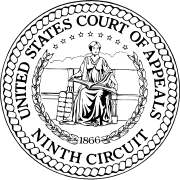Micro Star v. FormGen Inc.
| Micro Star v. FormGen Inc. | |
|---|---|
 |
|
| Court | United States Court of Appeals, Ninth Circuit |
| Full case name |
MICRO STAR v. FORMGEN INC., a corporation; GT Interactive Software Corp.; 3D Realms Entertainment, aka 3D Realms Entertainment. |
| Argued | November 4 1997 |
| Decided | September 11 1998 |
| Citation(s) | 154 F.3d 1107 |
| Case history | |
| Prior action(s) | Micro Star v. FormGen Inc., No. CV 96-3435 H(CM) (C.D. Cal. Sept. 30, 1996) |
| Holding | |
| Micro Star infringed FormGen's copyright by creating unauthorized derivative works which were not a fair use | |
| Court membership | |
| Judge(s) sitting | Alex Kozinski, David R. Thompson, Stephen S. Trott |
| Case opinions | |
| Majority | Alex Kozinski |
| Laws applied | |
| 17 U.S.C. § 103,§ 106, § 107 | |
MICRO STAR v. FORMGEN INC., a corporation; GT Interactive Software Corp.; 3D Realms Entertainment, aka 3D Realms
The case Micro Star v. FormGen Inc. 154 F.3d 1107 (9th Cir. 1998) is a California court case in which United States Court of Appeals for the Ninth Circuit overruled the district court's decision in favor of the plaintiff, FormGen Inc. against the defendant, Micro Star on the issue of the fair use of the user-created levels for the video game Duke Nukem 3D, which is owned by FormGen Inc. This case established that audiovisual display can be copyrightable in certain circumstances.
FormGen Inc, GT Interactive Software Corp. and Apogee Software, Ltd. (collectively FormGen) made Duke Nukem 3D (D/N-3D), a 3D first-person perspective video game. A build editor was shipped along with the game, which enables players to design and build their own levels, and then share those levels with others through the Internet. FormGen encouraged people to make levels, and did not consider this user-created content to be a copyright infringement.
Micro Star collected 300 of these user-generated levels, packaged them onto a CD, and sold it commercially as Nuke It (N/I). N/I's packaging was decorated with numerous screen shots of the included user-created levels.
Micro Star went to court and asked for a declaratory judgment that what they were doing was not copyright infringement. FormGen Inc. countersued, claiming that the levels were derivative works, and as the copyright holder, only they had the right to license derivative works.
After Micro Star started to seek a declaratory judgment from the district court for free of copyright infringement from FormGen, FormGen countersued for a preliminary injunction to prevent further production and distribution of N/I. Building on the precedent established by Lewis Galoob Toys, Inc. v. Nintendo of America, Inc., 964 F.2d 965(9th Cir.1992), the district court ruled that N/I was not a derivative work, and hence the content itself did not violate FormGen's copyright. However, the district court found that N/I's packaging infringed FormGen's copyright on the D/N-3D characters, as it reproduced the art without licensing from FormGen. The court also turned down Micro Star's fair use claims. Both sides filed appeals with United States Court of Appeals for the Ninth Circuit which were granted.
...
Wikipedia
